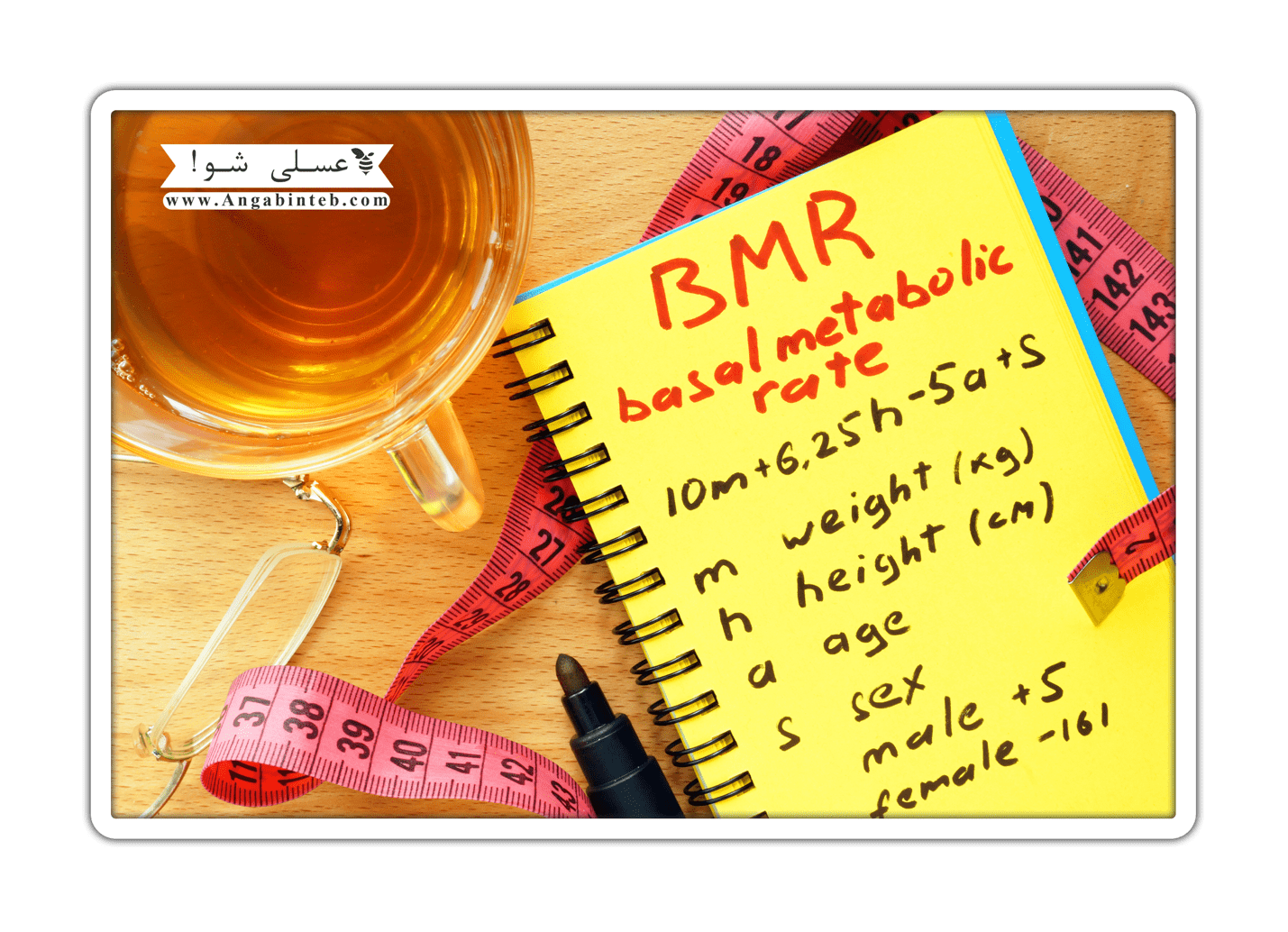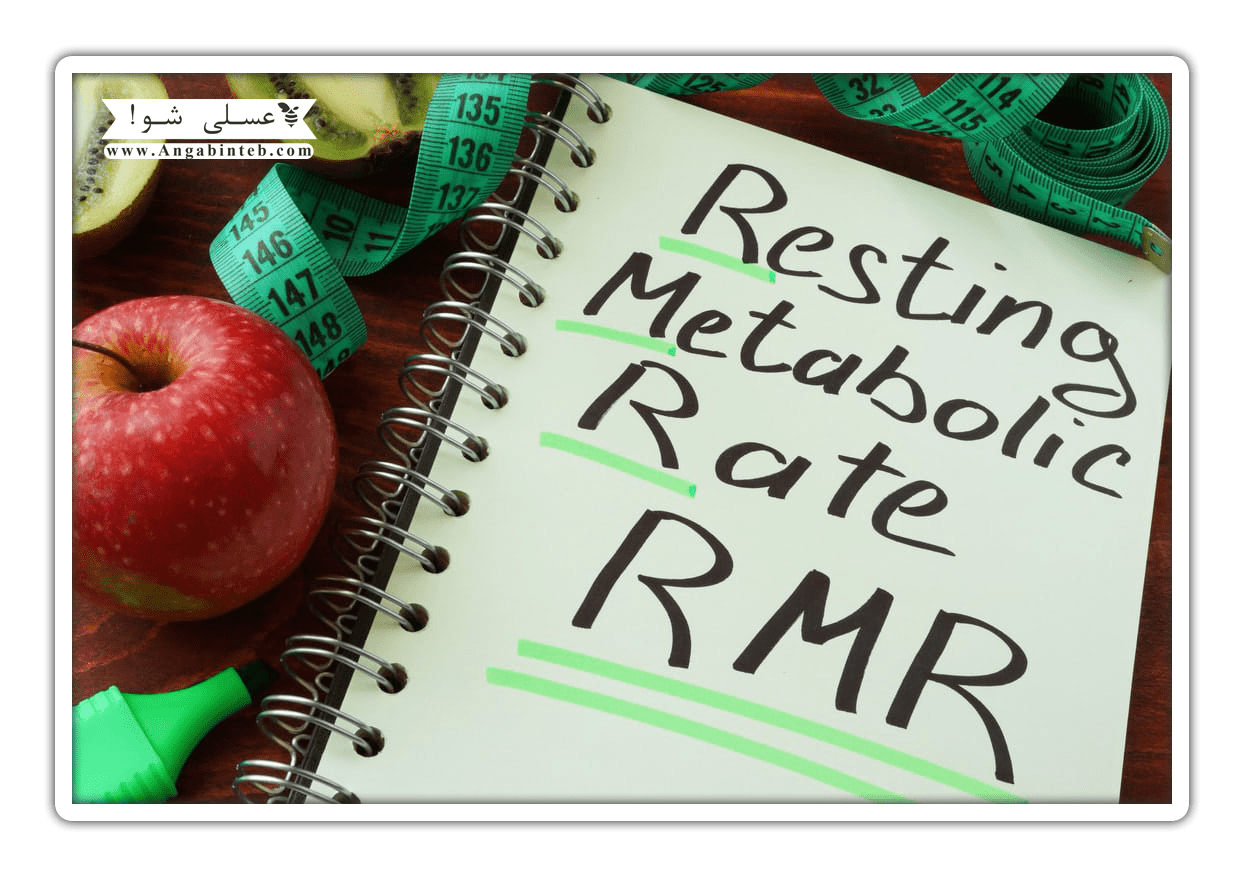دوست داری رژیم بگیری ؟
Measurement of basal metabolism
In many people due to improper and incorrect dieting ,the body undergoes changes in metabolism and no longer responds to the diet to lose weight ,causing person to lose motivation to continue treatment or turn to dangerous methods .in this institute the amount of people’s metabolism can be determined by using indirect calorimetric technology , which uses the amount of oxygen consumption and excreted carbon dioxide in respiratory gases and then a special diet ,compatible with people’s metabolism is designed by a nutritionist and clients succeed in losing continuous and appropriate weights with a scientific and accurate method and low probability of failure.
The resting metabolic rate or RMR is the amount of energy ,your body burns during the complete rest. You can calculate the amount of your RMR to see how many calories your body needs to perform basic tasks such as respiration and blood circulation. Your resting metabolic rate or RMR is a part of your Total Energy Expenditure or TEE ,you burn every day.
What is metabolism?
We often talk about metabolism as a single way in the body, but it’s not. Metabolism (including resting metabolic rate) includes normal functions always occur in your body and the incidence of those functions is the rate of your metabolism.
Your body converts the food you eat into energy to be able to perform basic and complicated functions such as breathing or movement. This process is called metabolism. The whole process of metabolism is actually a series of chemical actions ,keep your body alive and healthy.
Every food you eat contains nutrients . your body absorbs nutrients and converts them into heat or calorie units. The energy or calories of food provides by food is used immediately or stored in your body for later use.
What is RMR or resting metabolic rate?
The Resting metabolic rate is the energy required to perform the most basic functions during rest. this basic functions include items such as breathing ,blood circulation or basic functions of the brain. The resting metabolic rate is usually interchangeable with Basic Metabolic Rate (BMR).while RMR is the amount of calories that the body burns at rest ,basic metabolic rate (BMR) is the minimum number of calories your body burns to survive without being influenced by external factors.
Although BMR is a little more accurate ,it differs from RMR only in certain clinical conditions ;BMR is performed in a state of physical(lying down) and mental in a temperature-neutral environment at the beginning of the morning before any physical activity and 10-12 hours after receiving food ,beverages or nicotine. However RMR is an estimate of BMR and it’s suitable for estimating your daily caloric needs and it’s easier to calculate. Currently due to BMR measurement problems ,RMR amount is measured which in most cases is 10-20% more than BMR.
Basic metabolic rate or BMR is different for different people. Factors affect your BMR include your weight ,gender ,age and your body composition. For example ,someone who is very big and muscular needs more energy to keep his body at rest than someone who is very small. You can roughly calculate your basal metabolic rate. Harris-Benedict equation is often used to estimate basal metabolic rate (BMR) or resting metabolic rate (RMR).Harris-Benedict equation for calculation of BMR:
Men : BMR = 88.362 + (13.397 × weight in kg) + (4.799 × height in cm) - (5.677 × age in years)
Women : BMR = 447.593 + (9.247 × weight in kg) + (3.098 × height in cm) - (4.330 × age in years)
Is my BMR normal?
When you know your BMR you may be tempted to compare your BMR with the people around you and you may wonder if your BMR is normal. But everyone’s BMR is commensurate with their physical condition ,so don’t expect your BMR to match the BMR of your family or your friends.
According to credible sources :
Women: average BMR 1400 calories per day
Men: average BMR more than 1600 calories per day
Can I change my BMR ?
If you change your body weight ,your basic metabolic rate will also change. Gaining weight will increase your BMR while losing weight will reduce your BMR .also, with age basic metabolic rate usually decreases. Except for the above you can’t really change your basic metabolic rate significantly.

Factors affecting basic metabolism rate
Factors affecting basic metabolic rate are various factors that vary from person to person. Body size and composition have the greatest impact.
Gender: sex differences in basic metabolic rate are mainly related to differences in body size and composition. Women of the same weight and height have 5 to 10 percent lower basic metabolic rate due to their higher fat-to-muscle ratio.
Hormonal status: hormonal status can affect basic metabolic rate ,especially in people with endocrine disorders such as hyperthyroidism and hypothyroidism ,which increase or decrease energy expenditure ,respectively.
Women’s basic metabolic rate fluctuates during menstruation. Some studies have shown that BMR gradually increases during pregnancy due to the growth of uterus ,placenta and fetal tissues and increased maternal heart rate.
Temperature: fever increases the basic metabolic rate by 13% per degree increase in temperature above 37 degrees.
Climate: the rate of basic metabolism is strongly influenced by ambient temperature. Basic metabolic rate is higher in people living in tropical climates. Exercise at temperatures above 37 degrees causes an approximately 5% increase in metabolic load due to increased activity of sweat glands .the rate of increase of energy metabolism in very cold environment depends on the insulation of body fat and clothing. Other factors: caffeine, nicotine and alcohol stimulate basal metabolic rate. Also, under conditions of stress and illness (depending on clinical situation), energy consumption may increase or decrease ,but in conditions of starvation and chronic periods of diet and in people with bulimia nervosa ,the basic metabolic rate decreases.






